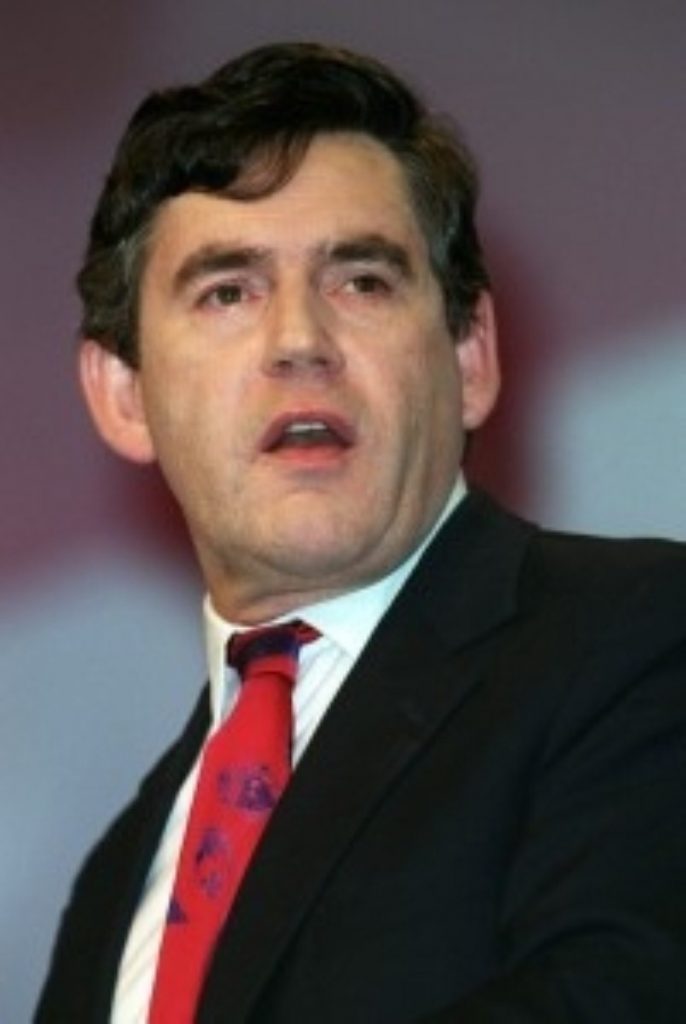Brown: World ‘must do more’ to fight poverty
Chancellor of the Exchequer Gordon Brown has said this morning that the world ‘must do more’ both in emergency disaster relief and in the long-term fight against poverty.
Emergency aid to the countries affected by the Asian tsunami must be accompanied by long-term work on the reconstruction of the countries economies, the Chancellor said. He pointed out that though natural disasters can affect any country, those that are already poor and underdeveloped have the least capacity to respond – and are the most devastated.
Speaking this morning at the National Gallery of Scotland in Edinburgh, the Chancellor said the world had been humbled twice – firstly by the “awesome power of nature to destroy”, and then again by the “extraordinary power of human compassion to build anew.
“And the worldwide demonstration in the last few days not just of sympathy but of support shows that even if we are strangers, separated and dispersed by geography, even if diverse because of race, even if differentiated by wealth and income, even if divided by partisan beliefs and ideology – even as we are different diverse and often divided – we are not and we cannot be moral strangers. We are one moral universe. And the shared moral sense common to us all makes us recognise our duty to others.”


He added: “So while 2004 was a year which ended in the horror of a natural disaster, 2005 is a year that can start with the hope of human progress.”
In terms of his key plan of a moratorium on debt relief for the affected countries, Mr Brown did not announce the full agreement of the other G8 countries as expected by some. He simply said that the UK and “other governments” are proposing it.
He confirmed that the UK was also proposing a full multilateral debt write-off for Sri Lanka and said that Britain will unilaterally pay 10 per cent of that write-off.
Returning to the key subject of his long-planned speech, Mr Brown said that he was determined to institute a new ‘Marshal Plan’ for the whole developing world – and in particular Africa.
“And let me say the urgency and scale of the agenda I am going to propose for debt relief, for new funds for development and for fair trade is now even more pressing given the tragic events of recent days.
“It is because I want a world that does not have to choose between emergency disaster relief and addressing the underlying causes of poverty and injustice – between advancing first aid and advancing fundamental change – that the proposals I am putting forward today to advance the interests of all the developing world will – the Government believes – find support in all parts of the world.”
In addition, he said that Britain would make a further unilateral commitment of debt relief. Mr Brown said: “I can state that Britain will relieve those countries still under the burden of this debt to these banks by unilaterally paying our share – 10 per cent – of payments to the World Bank and African Development Bank. And we will both deepen and widen our debt relief as we will pay our share on behalf not just of Heavily Indebted Poor Countries but – because their need is just as great – of all low income countries, as long as they can ensure debt relief is used for poverty reduction.”
The Chancellor also said that at the next G8 finance ministers’ meeting he would be “asking other countries to contribute directly or to a World Bank trust fund.”
Turning to the upcoming Gleneagles G8 summit, Mr Brown said that top of the agenda would be “the most important issue of our generation – world poverty.”
Warning that the Millennium Development Goals would not be met for over a hundred years on current progress, saying: “150 years is too long to wait when a promise should be redeemed, when the bond of trust should be honoured now, in this decade.”
“I believe in 2005 we have a once in a generation opportunity to deliver for our times a modern Marshall Plan for the developing world– a new deal between the richest countries and the poorest countries but one in which the developing countries are not supplicants but partners.”
He reiterated the key steps he believes are necessary, firstly full debt relief, secondly ensuring they can benefit from world trade, and thirdly an increase in development aid and the creation of the international finance facility.
The Chancellor added: “We do not wipe out the debt of the poorest countries simply because these debts are not easily paid. We do so because people weighed down by the burden of debts imposed by the last generation on this cannot even begin to build for the next generation. To insist on the payment of these debts is unjust – it offends human dignity. What is morally wrong cannot be economically right.”
“First we the richest countries agree to end the hypocrisy of developed country protectionism by opening our markets, removing trade-distorting subsidies and in particular, doing more to urgently tackle the scandal and waste of the Common Agricultural Policy – showing we believe in free and fair trade.”












